Abstract
1. The discharge of chemoreceptor afferents in preparations of the sinus nerve in spontaneously breathing anaesthetized cats has been subjected to an averaging procedure in records obtained when the animals breathed (a) air and (b) a hypoxic gas mixture. 2. The mean discharge frequency was higher in hypoxia than at normal oxygen tension. 3. Oscillations in chemoreceptor discharge frequency with the same period as respiration were obtained by the averaging procedure both at normal arterial oxygen tensions and in hypoxia, but there was no significant increase in oscillation amplitude with hypoxia. 4. The carotid body response to arterial PCO2 oscillations does not therefore appear to be amplified by hypoxia. This finding is discussed in relation to the reported dependence upon hypoxia of the ventilatory effects of tube breathing in man.
Full text
PDF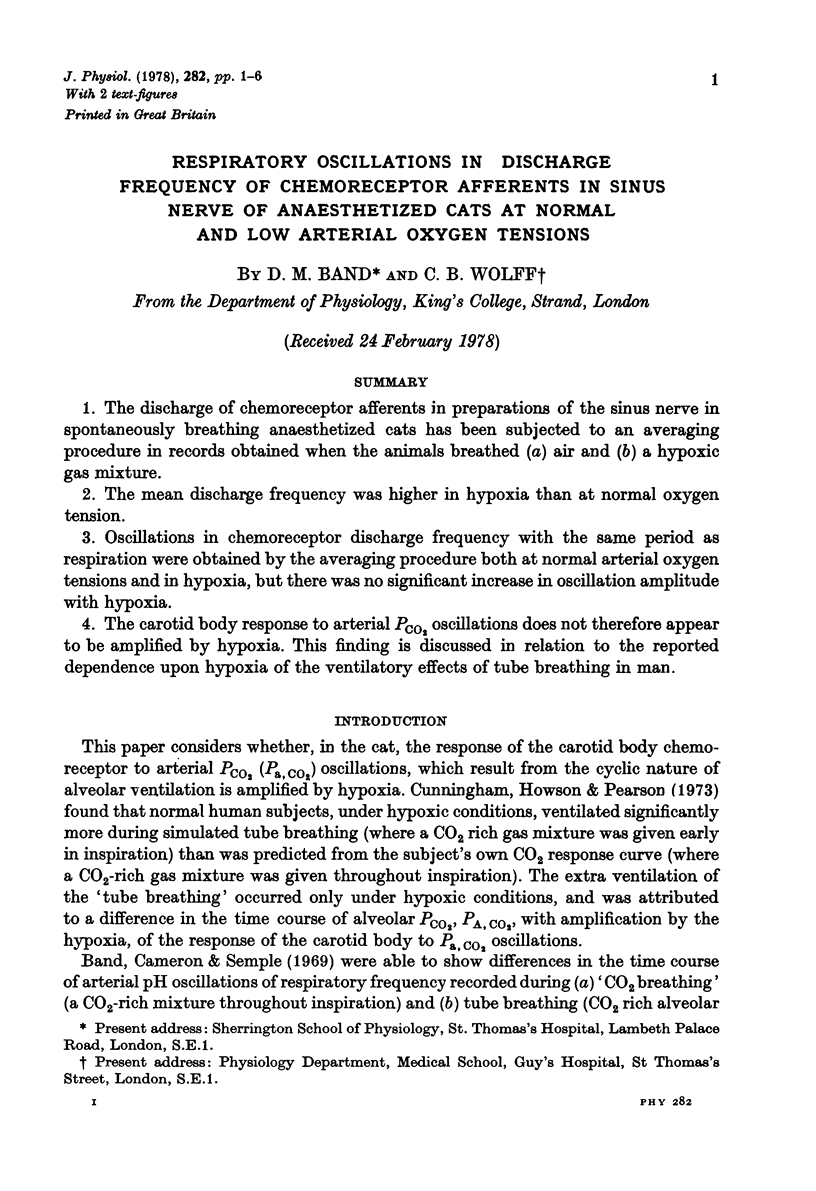
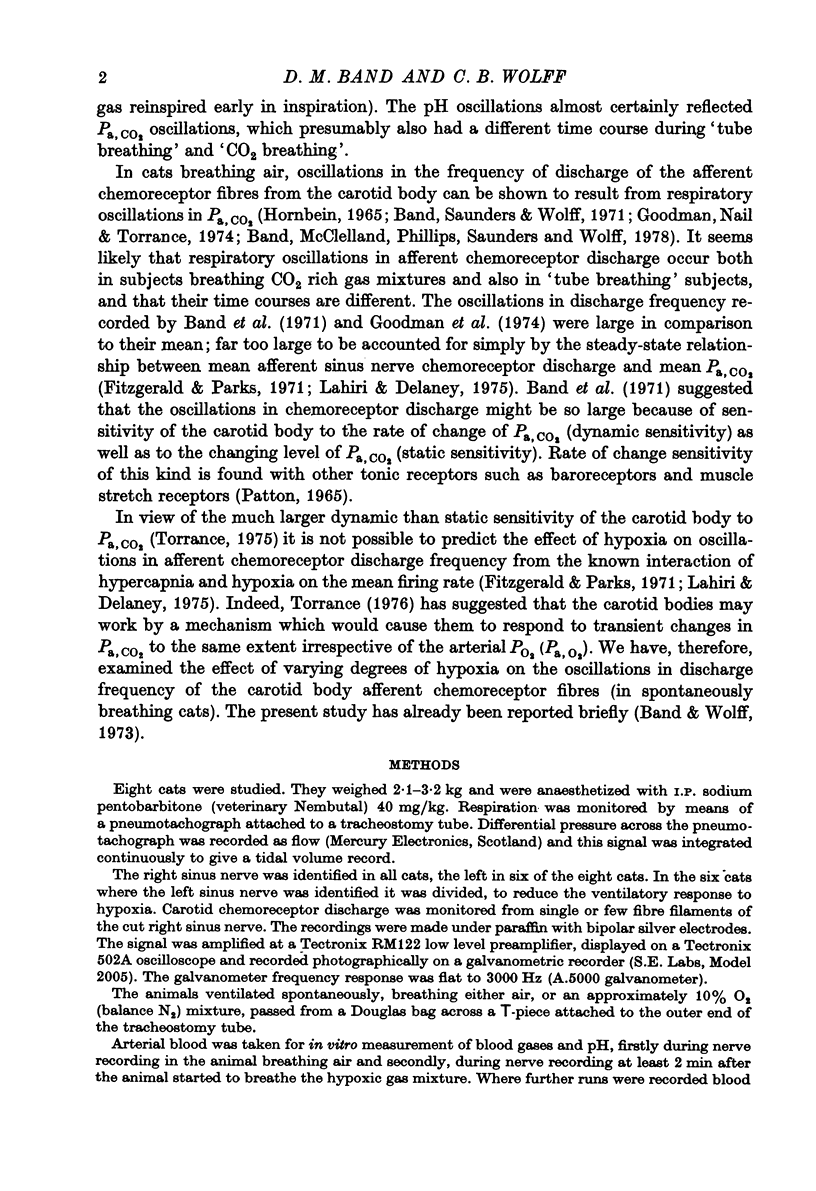
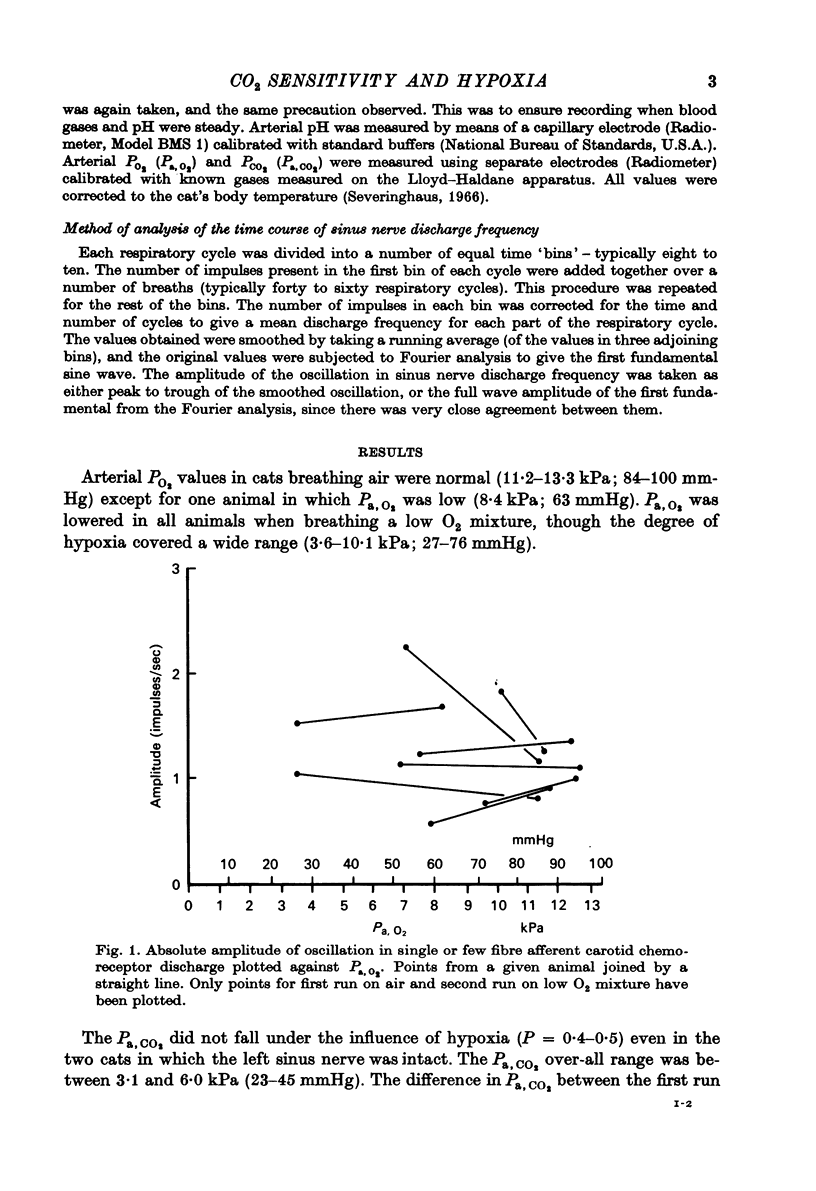
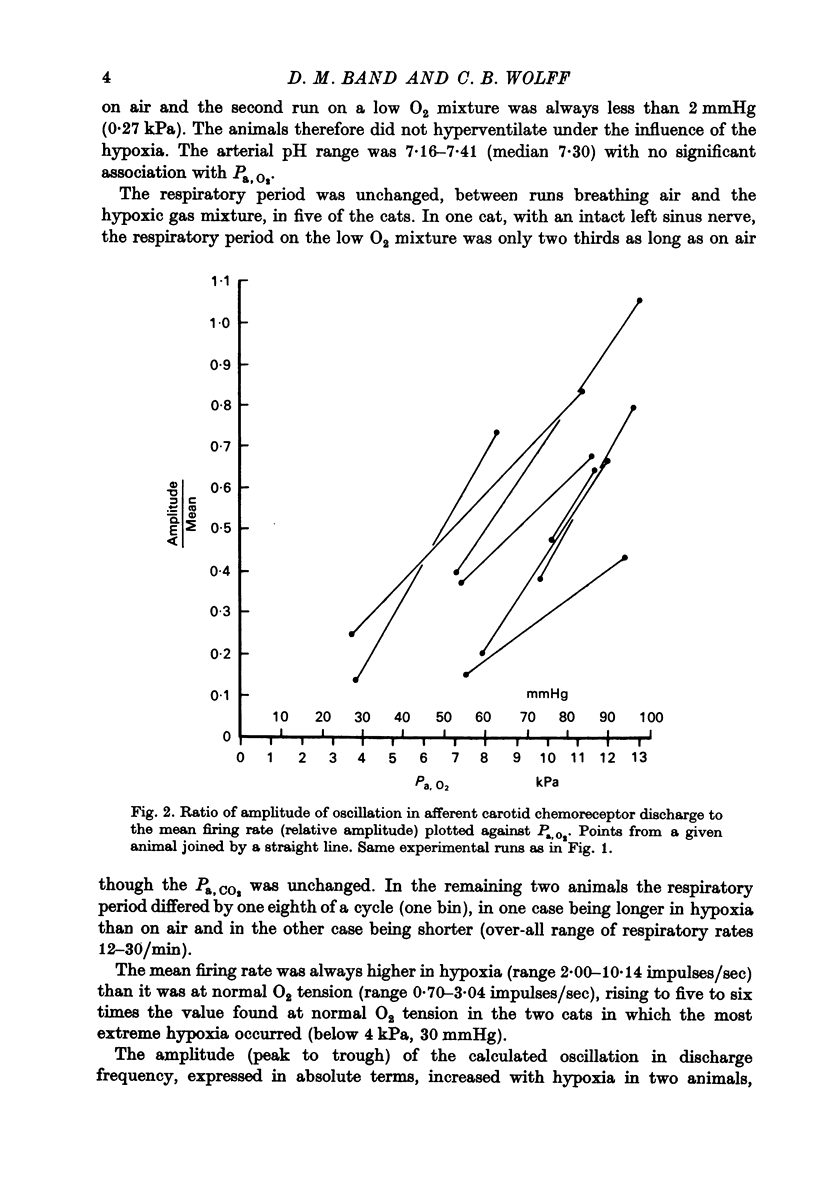
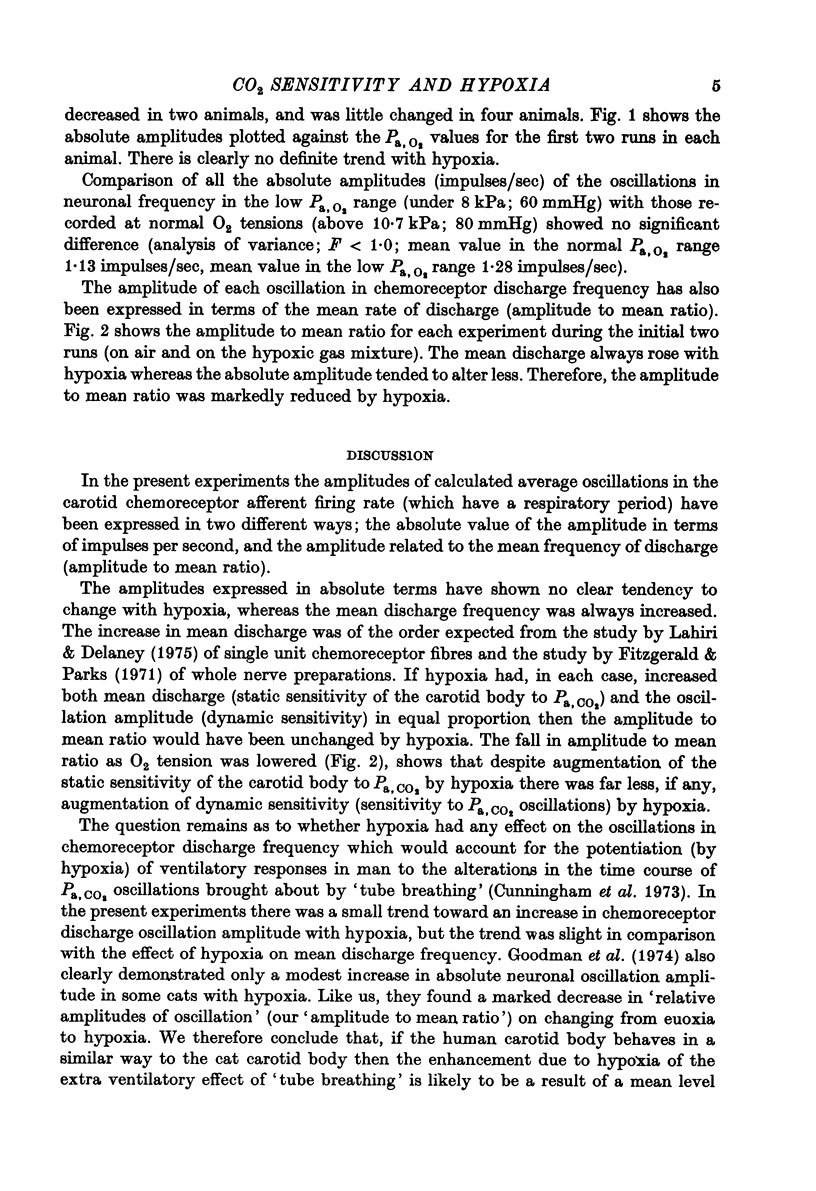
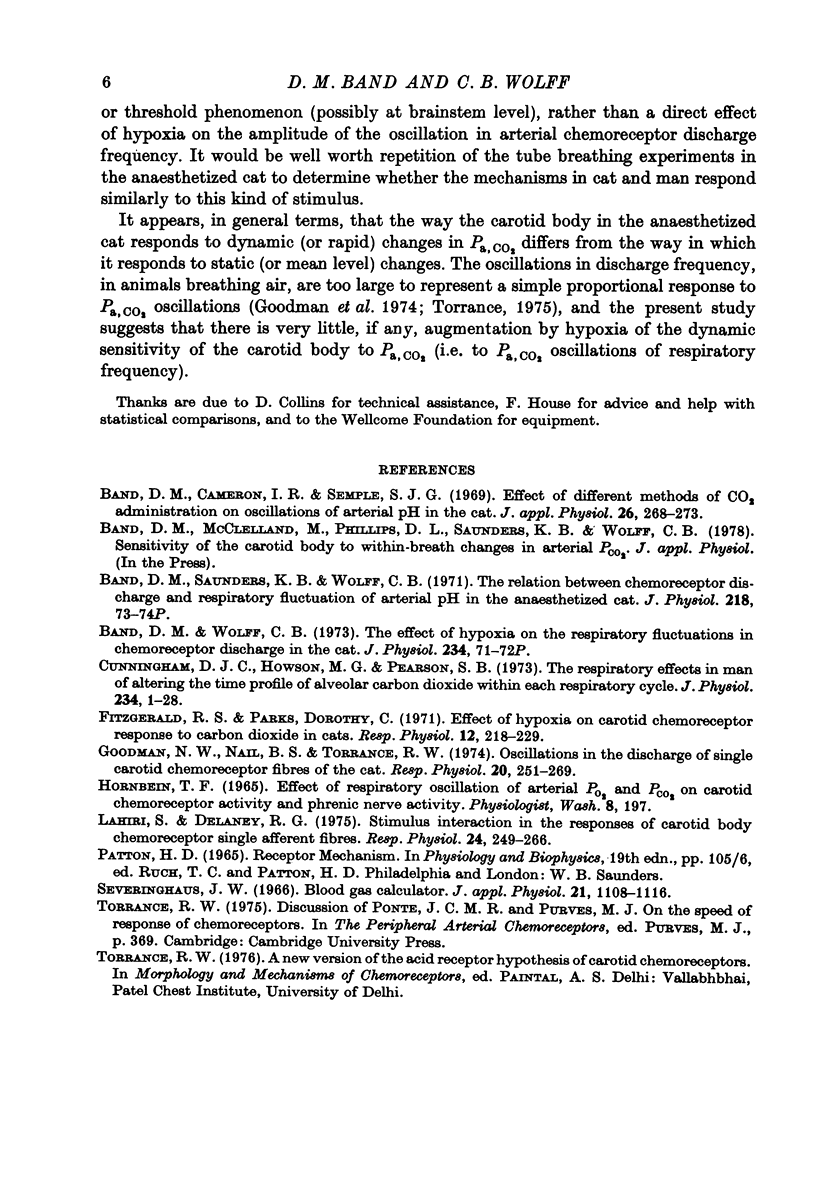
Selected References
These references are in PubMed. This may not be the complete list of references from this article.
- Band D. M., Cameron I. R., Semple S. J. Effect of different methods of CO2 administration on oscillations of arterial pH in the cat. J Appl Physiol. 1969 Mar;26(3):268–273. doi: 10.1152/jappl.1969.26.3.268. [DOI] [PubMed] [Google Scholar]
- Band D. M., Wolff C. B. Proceedings: The effect of hypoxia on the respiratory fluctuations in chemoreceptor discharge in the cat. J Physiol. 1973 Oct;234(2):71P–72P. [PubMed] [Google Scholar]
- Bsnd D. M., Saunders K. B., Wolff C. B. The relation between chemoreceptor discharge and respiratory fluctuation of arterial pH in the anaesthetized cat. J Physiol. 1971 Oct;218 (Suppl):73P–74P. [PubMed] [Google Scholar]
- Cunningham D. J., Howson M. G., Pearson S. B. The respiratory effects in man of altering the time profile of alveolar carbon dioxide and oxygen within each respiratory cycle. J Physiol. 1973 Oct;234(1):1–28. doi: 10.1113/jphysiol.1973.sp010331. [DOI] [PMC free article] [PubMed] [Google Scholar]
- Fitzgerald R. S., Parks D. C. Effect of hypoxia on carotid chemoreceptor response to carbon dioxide in cats. Respir Physiol. 1971 Jun;12(2):218–229. doi: 10.1016/0034-5687(71)90054-5. [DOI] [PubMed] [Google Scholar]
- Goodman N. W., Nail B. S., Torrance R. W. Oscillations in the discharge of single carotid chemorecptor fibers of the cat. Respir Physiol. 1974 Jun;20(3):251–269. doi: 10.1016/0034-5687(74)90023-1. [DOI] [PubMed] [Google Scholar]
- Lahiri S., DeLaney R. G. Stimulus interaction in the responses of carotid body chemoreceptor single afferent fibers. Respir Physiol. 1975 Sep;24(3):249–266. doi: 10.1016/0034-5687(75)90017-1. [DOI] [PubMed] [Google Scholar]
- Severinghaus J. W. Blood gas calculator. J Appl Physiol. 1966 May;21(3):1108–1116. doi: 10.1152/jappl.1966.21.3.1108. [DOI] [PubMed] [Google Scholar]


